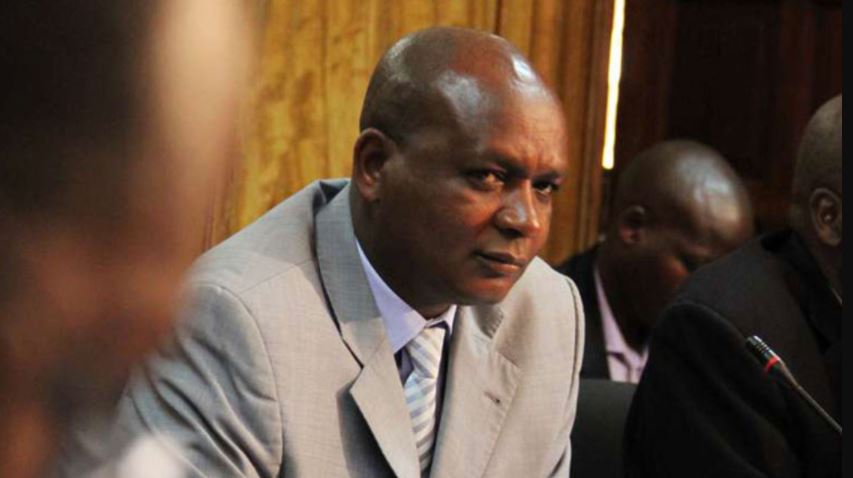
In theory, MPs play no role in the management of the monies allocated for constituency development, but in reality, they have the final say on how the funds are spent given that the members of the CDF committees are their appointees. No wonder then they still sneak in their names on the projects funded under NG-CDF. What can you say about this? Julius Mbugua, Dagoretti South
Contrary to the above notion, the person who holds the authority to incur expenditure is the fund account manager, who is an officer of the national board deployed to each constituency.
Further, the NG-CDF committee in each constituency, whose resolutions mandate the fund account manager to incur expenditure, is composed of members selected competitively by a panel made up of the officer of the board, the deputy county commissioner, and two other persons from the constituency.
The MP does not play any role in the selection panel for members of the NG-CDF committee nor in approving expenditures.
The National Government Constituencies Development Fund Act 2015 was among the 23 laws the High Court nullified, and even though an appeal is pending before the Court of Appeal, the future of NG-CDF and the many development projects funded through it hang in the balance. Have you considered mitigating measures in case the appeal disfavours you? How can the fund and its projects be safeguarded in the current fluid circumstances when its future is still up in the air? Terry Owino, Awasi
Considering that this matter is before the Court of Appeal and the judgement is yet to be made, we do not wish to speculate on the outcome. However, it is important to state that the Court of Appeal ordered that the status quo be maintained pending the delivery of judgement, hence the impugned acts, including the NG-CDF Act, remain in force. It is also important to point out that the parties affected by the judgement will still have the option of proceeding to the Supreme Court if necessary.
The Auditor-General has every year flagged misuse and wastage of billions of shillings allocated to the NG-CDF yet these reports are hardly acted upon. Reason? Audit reports are submitted to Parliament and the MPs who have been accused of misuse make the final determination on the reports. As NG-CDF, how do you hold the constituency committees accountable when their patron is shielding them in Parliament? Is it time audit reports of NG-CDF were taken away from MPs for proper accountability? Boaz Mumo, Katani
The Auditor-General’s reports on NG-CDF are regularly reviewed by the National Assembly’s Special Fund Accounts Committee and the recommendations implemented. This is in line with the constitutional mandate of the National Assembly and does not amount to conflict of interest since MPs are not the authority to incur expenses.
Where officials of the fund have been found culpable, the national board takes decisive action in liaison with relevant government agencies.
There are valid concerns that as the 2022 General Election beckons, many MPs are likely to divert funds towards their re-election or use the same funds as some form of bribes to woo voters, especially during this pandemic. Sir, what is your take on such concerns? Komen Moris, Eldoret
The funds are approved by the board and released to constituencies for specified projects. The NG-CDF committees in the constituencies can only release funds from their bank accounts to an approved project. Therefore, there is no way funds can be diverted to finance campaigns.
Pending bills are concerns that cut across the two levels of government and there have been efforts to settle them. Recently, an MP was captured slapping a young man reported to be a contractor who was trying to have some pending bills settled. What is the procedure of settling such bills within the constituencies? How can such conflicts be averted? Komen Moris, Eldoret
It is government policy to address the issue of pending bills in order to support the growth of local enterprises. To this effect, the board has compiled information on pending bills and asked constituencies to settle them as a matter of priority.
Further, Section 56 of the Act empowers the board to address all complaints resulting from the implementation of the Act in the first instance before a complainant can resort to the court process. Therefore, any person having difficulties with pending bills at the constituency level may present the complaint to the board.
Sir, the NG-CDF sometime back conducted an evaluation of ongoing projects to determine those that fall under the devolved functions. What were the findings and how useful was the evaluation? Joseph Wambua, Kitengela
The evaluation report showed that a number of projects falling under the purview of county governments remain incomplete following the enactment of the NG-CDF Act, which changed the focus of the fund to only projects falling under the national government functions.
Recently, formal consultations were conducted between the board, National Assembly Select Committee on NG-CDF, the Council of Governors and the National Treasury to deliberate on the report and agree on appropriate measures to complete the stalled/ongoing projects. A framework was agreed on for further actions towards securing funds for the projects.
I have noted that since the fund was introduced, Treasury, Parliament and your office are yet to develop a legal framework and regulations to, among others, govern the prudent usage and absorption of monies under this fund. Similarly, I am concerned there are no tools for community social auditing, tracking, monitoring and evaluation of the projects, some of which have stalled for far too long. What will you do to remedy these lapses? Dan Murugu, Nakuru
The fund is managed in line with the Public Finance Management Act of 2012 and its regulations, the Public Procurement and Assets Disposal Act 2015 and its regulations, and all projects, depending on the sector in which they fall, are implemented as guided by the pertinent statutes. Further, the board has published NG-CDF Regulations of 2016 and periodically issues guidelines to constituencies and all government circulars applicable to the fund provide policy direction in the management of the fund.
The board has a monitoring and evaluation division whose role is to track implementation of projects by collecting and analysing data, and conducting visits to sampled projects. The board has also embraced participatory monitoring and evaluation to incorporate community feedback on the impact of the projects.
How best can the selection of members of the project management committee be conducted to seal loopholes for favouritism and nepotism? Should your office be in charge of the process as opposed to the current situation where we are told the recruitment is competitive when it is obvious the MPs “make” the appointments? Thomas Kweyu, Bungoma
Section 36 of the NG-CDF Act, provides that projects shall be implemented by the project management committee (PMC) assisted by the relevant government department.
A PMC is an entity established by the community pursuant to Section 41(2) of the NG-CDF Act to represent its interests during and after implementation of the project. In this regard, the law presupposes that the process of constituting the PMC is democratic. The board can therefore not take charge of the process of constituting a PMC since by so doing it will be imposing leadership on the community and depriving the people of ownership of the project.
While infrastructure projects funded by NG-CDF have a long-lasting impact, the lasting impression of the fund for many is the relief it gives to learners in the form of bursaries. Is there a way the ceiling for bursaries can be raised to say 40 or 45 per cent? This will go a long way in helping thousands of bright but needy children. Benson Munyithya, Nairobi
Section 48 of the NG-CDF Act sets the bursaries ceiling at 35 per cent of the total funds allocated in any financial year. Therefore, a constituency cannot allocate more than this unless the Act is amended.
Parliament last year adopted a new formula for the horizontal division of revenue among counties and the formula aims to share resources based on functions assigned to counties and key services. Would NG-CDF consider adopting a similar formula so that monies go to functions rather than the traditional parameters of land size, and population among others? Evans Mburu, Nanyuki
The annual allocation to the Fund which is not less than 2.5 per cent of the National Government’s share of revenue as determined by the Division of Revenue Act is shared to the 290 constituencies in equal proportion pursuant to sections 6 & 34 of the NG-CDF Act.
Each constituency committee consults the community through open public forums to determine which projects to be funded subject to approval of the Board. The suggestion to adopt the County criteria for allocation of funds can be considered during the next amendments to the Act. Sir, why was the name changed from simply CDF to NG-CDF? What difference, if any, has the change brought in the management of the Fund? Githuku Mungai, Nairobi
The change of the name of the Fund from CDF to NG-CDF was brought about by the enactment of the NG-CDF Act of 2015.
This was necessary in order to align the Act to the Constitution of Kenya 2010 by embracing the principles of participation of the people, separation of powers, and delineation of functions between National and County governments.
Some of the key changes brought about by the new Act include: clear provision that the Fund is set aside from a minimum of 2.5 per cent of the National Government’s share of annual revenue; clear separation of implementation from representation, legislation and oversight roles; clear provision that projects that are eligible for funding are those that address the functions of the National Government under the constitution and incorporation of social security programmes as eligible projects under the Fund through which constituencies partner with NHIF to provide healthcare financing to vulnerable families.
Courtesy: Sunday Nation






